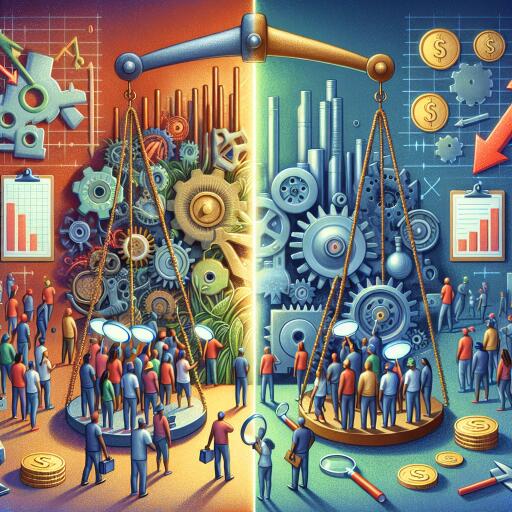Do Immigrants Help or Hurt the US Economy? The Answer Might Surprise You.
As the 2024 election approaches, the topics of immigration and the economy are emerging as critical concerns among voters. However, the debate often veers towards oversimplified political narratives that fail to capture the complexity of these issues.
Challenges and Opportunities
At the heart of the discussion is a question that generates heated debates: Are immigrants beneficial or detrimental to the U.S. economy? The answer is not straightforward and varies depending on the perspective one chooses to adopt.
Some urban areas, like New York City, have felt the financial strain from a significant influx of immigrants, with mayoral projections estimating expenditures to surpass $12 billion by fiscal year 2025 in an effort to accommodate over 100,000 migrants. Such figures paint a picture of burden at the local level, suggesting substantial costs associated with increased immigration.
Yet, this localized view only represents part of a broader economic narrative.
The Bigger Picture
A closer look at the national economy reveals a different reality, one where immigrants play a pivotal role in addressing current labor shortages. According to Dhaval Joshi, chief strategist at BCA Research, the labor market has been significantly impacted by the pandemic-induced early retirement of older workers, along with a noticeable withdrawal from the workforce by an estimated 1.7 million native-born individuals aged 25 to 55 since 2022. The influx of immigrants during this period, both through legal and undocumented channels, has been instrumental in filling these vacancies, thereby helping to prevent a potential recession.
David Bier, associate director of immigration studies at the Cato Institute, further supports this view by emphasizing the importance of increasing goods and services production as a means to curb inflation. He notes, “One reason why the economy has adjusted over the last three years is the fact that we have started to get these immigrants into the labor force.” Immigrants have seamlessly assumed crucial roles in sectors such as elder care and construction, often going unnoticed until their contributions are abruptly highlighted through tragic events.
The impact of immigration extends beyond simply filling labor gaps. Immigrants have made significant contributions to innovation and entrepreneurship within the United States. A telling statistic from a 2022 National Foundation for American Policy study shows that 55% of U.S. startup companies valued at over $1 billion were founded by immigrants, indicating a disproportionate role in the creation of jobs and intellectual property.
Economic Shifts and Public Perception
Amidst concerns that an increase in unskilled labor could suppress wages for American workers, experts like Mr. Bier argue that such competition encourages domestic workers to acquire new skills and improve their education, thereby enhancing the overall job quality and facilitating a shift towards a more skilled and service-oriented economy. The apparent narrative of declining living standards over the past 40 years is challenged by the reality of this economic transition.
“Banning immigration would disrupt that change in a very significant way,” highlights the analyst, pointing to the integral role of immigration in the evolution of the U.S. economy. The demographic shifts due to declining birthrates further underscore the importance of immigration in sustaining economic growth and innovation.
In conclusion, while the immediate costs of accommodating immigrants in urban centers cannot be overlooked, the broader economic analysis presents a compelling case for the benefits of immigration. By contributing to the labor force, driving innovation, and fostering a dynamic shift towards a more skilled economy, immigrants are indeed proving to be a boon to the U.S. economic landscape. The conversation around immigration and the economy is complex and multifaceted, requiring a nuanced understanding that goes beyond political rhetoric to appreciate the full scope of impact.
